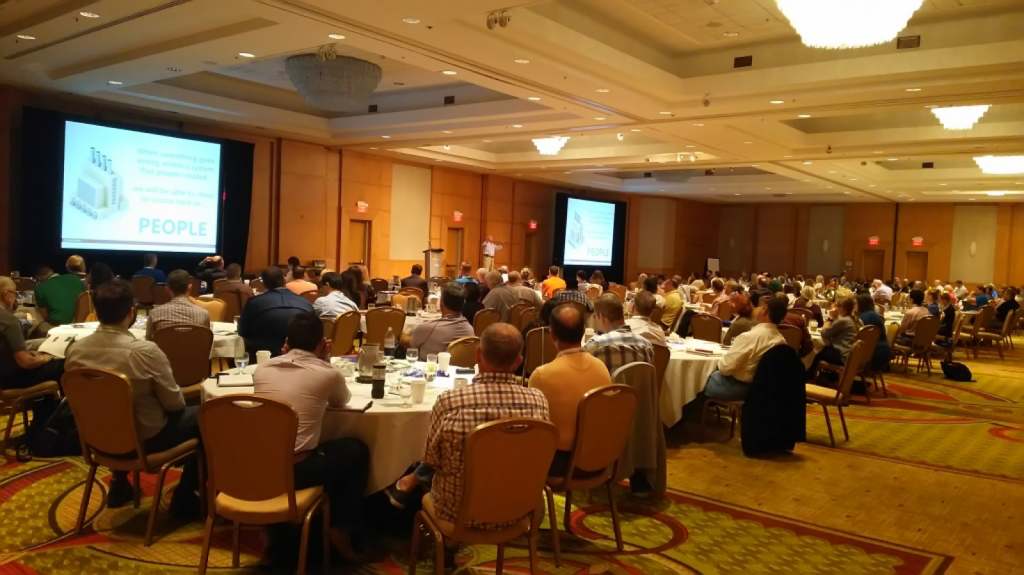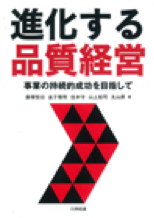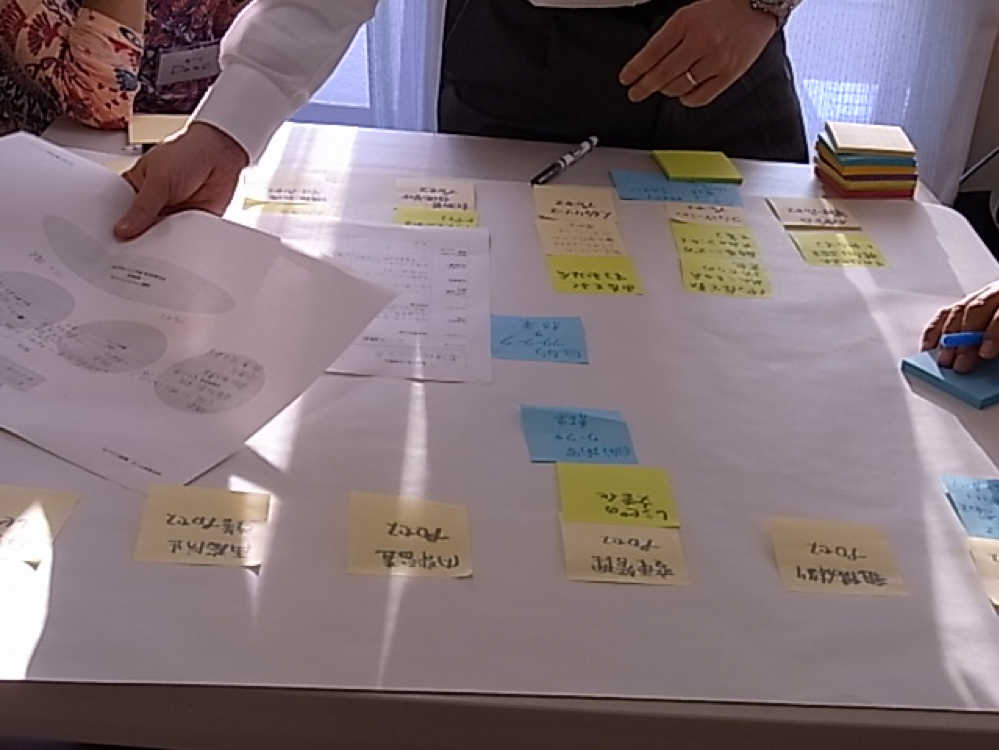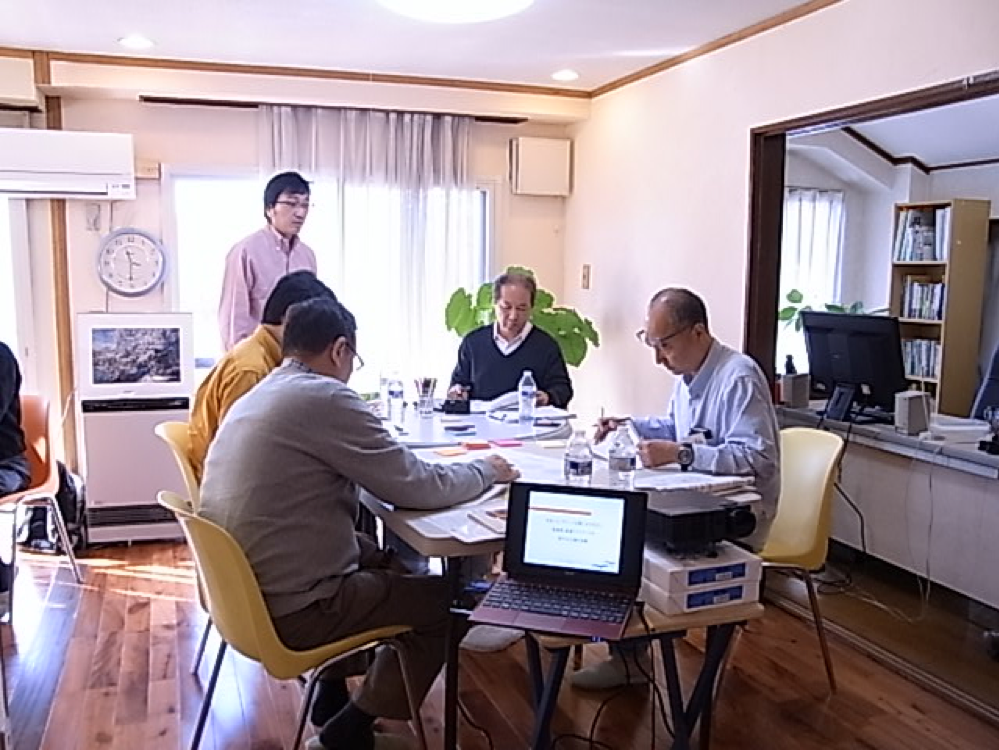- On December 17, 2018, Our company Yamagami participated in the seminar "Modeling Risk -Approach from QMS" of the CiaJ QMS Committee of the Information and Communication Network Industry Association.
- On August 31, 2018, Our company Yamagami participated in the seminar "Significantly Changing the MS Manual of Your Organization" of the CiaJ QMS Committee of the Information and Communication Network Industry Association.
- "Evolving Quality Management" was translated into Chinese in May 2018 by The Chinese Quality Inspection Publishing Company and The Standard China Publishing House, and published in China.Our yamagami wrote about customer value in Chapter 1.
- Yuji Yamagami's e-book "Internal Audit management system using facilitation techniques" (published by System Standards Co., Ltd.) is on sale from the Amazon site.
- Seminar Activity Report On March 8, 2018, Yamagami participated in the seminar "Learning Management System" of the Information and Communication Network Industry Association (CIAJ) QMS Committee.
- Notice of Writing Yuji Yamagami's "Learning Management System" is published in a special article in the March 2018 issue of ISO magazine Iso.I would like you to gain a deep understanding and empathy for the creation of a management system that you can learn from.Click here to purchase the March 2018 issue of Isos
- In the November issue of "Isos," details of the 23rd HPRCT Society (Human Performance, Root Cause, and Trending) in Toronto, Canada, on June 12-15, 2017, in the November issue of Isos.
- In addition to the writing, it was published in the series of the monthly magazine "Isos" written by Yuji Yamagami from April 2017 to the September issue.In the "LCA Latent Cause Analysis Approach – Cause Analysis for Changes in People and Organizations," we describe the potential cause analysis that changes the people and organizations learned in the United States, rather than correcting the cause analysis that does not change anything.The download version can be purchased from the following.http://www.isosms.info/
- Seminar Activity Report On November 29, 2017, Yamagami participated as a lecturer in the seminar "Thinking about the value judgment in QMS once again" of the Information and Communication Network Industry Association (CIAJ) QMS Committee.
- Seminar Activity Report On July 27, 2017, Our company Yamagami participated in the seminar "Where Do I See QMS" of the Information and Communication Network Industry Association (CIAJ) QMS Committee?
- Seminar Acti
vity Report On June 12-15, our yamagami was a lecturer at the 23rd HPRCT Society of Human Performance, Root Cause and Trending held in Toronto, Canada.The HPRCT Society is operated mainly by American organizations (nuclear power plants, natural gas providers, plant manufacturing, oil plants, power plants, etc.) and individual volunteers and is held once a year.This year was the 23rd time, and a total of 300 people participated and the venue was very lively.Academic conference lecturers will also participate as volunteers and present.The presentation was mainly about how to do corrective action and examples in each organization, and it was very educational.I was also able to exchange opinions with many people.The state and details of this society are published in the November issue of iso magazine "Monthly Isos", and we tell you how to correct the way of corrective action that is different from Japan and 180 degrees perspective.

- Seminar Activity Report On March 21, 2017, Our company Yamagami participated in the seminar "Visualizing Your QMS again" of the Ciaj QMS Committee of the Information and Communication Network Industry Association.
- Seminar Activity Report On November 29, 2016, Yamagami participated as a lecturer in the "LCA Latent Cause Analysis Approach (LCA) Workshop" seminar of the Information and Communication Network Industry Association (CIAJ) QMS Committee.
- Guide to the book In the August issue of Standardization and Quality Control, a magazine published by the Japan Standards Association, published yamagami's article "QMS Internal Audit for Organizations."
- E-book guide Yuji Yamagami's e-book "Internal Audit management system using facilitation techniques" issued by System Standards Co., Ltd. is on sale from the Amazon site http://www.isosms.info/page/27
- Seminar Activity Report On July 28, 2016, Yamagami participated as a lecturer in the seminar "Practice of modeling to create qms for the future of the organization" of the Information and Communication Network Industry Association (CIAJ) QMS Committee.
- Seminar Activity Report On March 18, 2016, Yamagami participated in the seminar "QMS Motivation Switch" of the Information and Communication Network Industry Association (CIAJ) QMS Committee.
- Seminar Activity Report On November 20, 2015, Yamagami participated as a lecturer in the seminar "ISO9001:2015 Edition" of the Information and Communication Network Industry Association (CIAJ) QMS Committee.
- Guide to the writing book "Evolving Qual
ity Management : Aiming for Sustainable Business Success" was released in May 2014.Our yamagami is writing Chapter 1 1.1 to learn about customer value.Click here for more details

- Seminar Activity Report At jrca-sponsored lectures held on August 28, 2015 (Tokyo) and 31 (Osaka), Yamagami gave a lecture on the value of internal audits and the contents of his lecture were published in the Monthly Isos November issue.
- Seminar Activity Report On June 8, 2015, at LIA-AC, JAB's MS certification body, the judges gave a lecture on "The Significance and Utilization of The Organization's Context", and the participants were pleased to hear that the fog that had been cleared, such as the fusion of risk management and QMS, had cleared up.
- Seminar Activity Report On March 24, 2015, Yamagami participated as a lecturer in the QMS Strategy Seminar "Considering the Significance of Context in QMS" of the Information and Communication Network Industry Association (CIAJ) QMS Committee.
- Seminar Report February 7-8, 2015 Clean Language: Seminar Name: Clean Language for Work ★ Seminar Content
sheron Small, w
ho lives in the United States, and trained in "clean language that can be used for work".Details were introduced in the "Nakao Diary", president of System Standards Co., Ltd., and the contents of the training were published in the April 2015 issue of Isos monthly.
What we did was to become a client and a questioner in pairs, and the questioner was a clean way to ask questions without assumptions.
Participants were able to first-hand feel the difficulty of asking questions without assumptions and how the assumption questions are interfering with the client's thinking.
It is a metaphor that is not very important in Japan, but this metaphor is used naturally by everyone on a daily basis.In clean language, the metaphor is deep.
At the seminar, by asking the metaphors emitted from the client smaller, the metaphors seemed to be realised and embodied in their heads, resulting in new awareness.
- Notice of Writing [Monthly Magazine Isos]
Iso Facilitation Series "MS Internal Audit Edition" written by Yamagami was published in the monthly magazine "Isos" August 2014 issue – March 2015 issue (all 8 series).This series includes the contents of the internal auditor training that incorporates context.
- Notice 【November 23, 2013 (Sat)Activity Report of ISO Facilitation Seminar] Seminar Name: "
Clean Audit [Purpose Tree] that the organization begins to move is here!!
- Let's not audit for interna
l audits an
ymore- ★ There are two major aspects to the internal audit: the audit to be inspected (against the results of the process) Second audit to understand whether the pr
ocess from the past to the future works.See what happens next = Effectiveness
audit companies are working on internal audits, andAsk.Will audits that inspect each process process be effective for the results?
This only ends with a compliance audit to make sure that the manual matches the criteria.
In the seminar, we clarified the difference between the audit being inspected and the audit that we understand using the [purpose tree].In the process of each process, the purpose, input, and output of each process are not based on manual criteria.What do you need for it?What are your activities?
Think causally and so on.At that time, it is [purpose tree] to use.
This purpose tree is very useful for auditors when describing processes.
The depiction of this process is important, and the way auditors ask clients (clean language questions) and the sequence of questions vary greatly.Through this work, you will understand how to conduct internal audits using the purpose tree.

- Notice 【Report on activity of ISO facilitation seminar held on Saturday, October 19, 2013】Semin
ar Name:"Question skills and tools that can be used in internal audits"
− Clean questions "improve the capabilities of MS promoters" ★ Seminar,
which deepened our u
nderstanding of internal audits and external audits that become auditor-subjects, as well as the differences between auditing and understanding audits.
On top of that, we used a clean language method to describe your work and do process landscape work.
In this work, i used imitation paper for each person and wrote to post-it about the structure of my work and work and what was important.
On top of that, by asking clean questions without assumptions, i was able to notice things and things that i had not seen until now, and i felt the effect of cleanliness on my skin.
There seemed to be a lot of awareness that the internal audit itself was often composed of questions and checklists with assumptions, and that the correction was being made by the induction of auditors.
★ summarized the voices of seminar partici
pants: "What do you want to get up?I felt the power of the question.I was able to know the order and effect of the question that it is good to ask a question after clarifying the business concretely. It was good to be able to speak freely in a small group.I want to use it for my own conference moderator. It turns out that unassumed questions feel cold at first glance because they don't involve emotion, but that they are difficult to surface.I want to use the question without the assumption in various situations.


